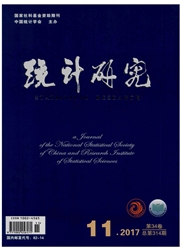

 中文摘要:
中文摘要:
本文采用第二次全国经济普查服务业企业数据,分析了中国行业间工资回报与集聚和垄断的关系。结果显示:行业集聚程度的提高会拉动行业平均工资的上升,但当集聚程度超过一定水平时,其对工资水平出现负向效应;经济垄断与行政垄断对于行业平均工资有一定的正向影响,经济规模越大的行业与隶属行政层次越高的行业工资回报也越高。研究还发现,人力资本存量的增加会提高行业的平均工资,并且在服务业中存在一定的工资性别歧视。
 英文摘要:
英文摘要:
Using the method of regression, this paper analyzes the relationships of agglomeration, monopoly and inter-industry wage, basing on service enterprises data from the second China' s National Economic Census. The result reveals that the higher industrial agglomeration degree can improve the industrial average wage level until it exceeds a certain level. Economicmonopoly and administrative monopoly have positive effect on industrial average wage. There is a higher wage return in the greater economic scale industries and higher administrative class enterprises. Besides, it also finds that the increase of human capital stock can improve industrial average wage and gender wage discrimination exists in service industry.
 同期刊论文项目
同期刊论文项目
 同项目期刊论文
同项目期刊论文
 期刊信息
期刊信息
